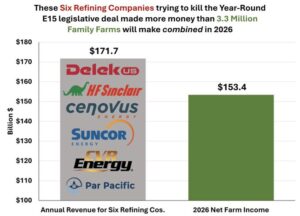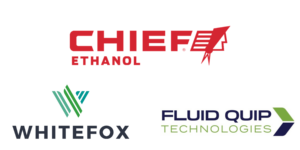2026 scholarship recipients include five university students:
Addie Gauck, a second-year student at Purdue University, pursuing a bachelor’s degree in agriculture systems management.
Felipe Almeida, a research assistant in ag economics at the University of Nebraska–Lincoln.
Miriam Nwaogaraku, a graduate assistant at the University of Wisconsin–Oshkosh, working toward a master’s degree in professional science, with a sustainable energy emphasis.
Samantha Cookson, an undergraduate student in chemical engineering at the University of Ottawa.
Shalom Iboh, a PhD candidate at the University of Florida, developing mathematical models for co-optimizing biofuel processes and products from renewable feedstocks.
Scholarships were also awarded to five members of RFA’s Young Professionals Network:
Brett Schrock, projects and research manager at Nebraska Ethanol Board.
Denise Atkinson, marketing manager at Chase Nedrow.
Emily Johnson, merchandiser at KAAPA Ethanol.
Verena Hopkins, sales representative at IFF.
Kayla McCaslin, accounting coordinator at Valero Energy.
The NEC scholarship program is named in honor of Robert “Bob” Sather, an educator who helped found Ace Ethanol. Sather was a longtime chairman of the Renewable Fuels Foundation, whose mission is to meet the research and education needs of the U.S. fuel ethanol industry. The aim of the Bob Sather Memorial Scholarship is to reach young adults aspiring to a career related to renewable fuels, open new doors for them, and present new perspectives on ethanol’s place in our world today and in the future.













